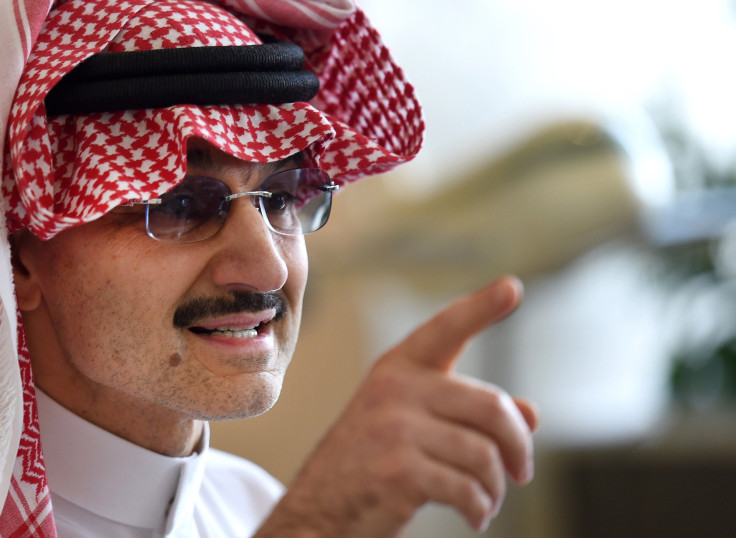What Saudi Prince Alwaleed Got Right About Bitcoin, Enron Comparison

Millionaire Saudi Prince Alwaleed bin Talal created quite a stir when he said bitcoin is destined to implode during a recent interview with CNBC. “I think this is Enron in the making," Alwaleed told CNBC, referring to the colossal accounting fraud that forced the energy company Enron to declare bankruptcy in 2001.
The Middle Eastern royal has a reputation for shrewd technology investments. He was an early investor in both Twitter and AOL. Now Alwaleed has joined the ranks of high-profile businessmen, such as JPMorgan Chase CEO Jamie Dimon, who are labeling bitcoin a fraud.
And yet, Alwaleed’s flippant criticism articulated precisely what so many people love about cryptocurrency. “It’s unregulated. It’s not under the control of the U.S. Federal Reserve or any other central bank,” Alwaleed reportedly said. Bitcoin veteran and Blockstream Chief Strategy Officer Samson Mow quickly tweeted what Alwaleed inadvertently got right: Bitcoin isn’t a government-issued currency.
Prince Alwaleed totally gets #Bitcoin: “This thing is not regulated, it's not under control, it's not under the supervision.” _ https://t.co/9Q5r3rf5fs
— Samson Mow [NO2X] (@Excellion) October 23, 2017
According to Coin Market Cap, bitcoin currently has a global market cap worth over $96 billion. It’s used by a wide range of people worldwide, from Afghan women entrepreneurs to accredited universities and even the private Swiss bank Falcon, which allows wealthy clients to exchange and hold bitcoin with their bank accounts. However, unlike Enron, bitcoin is not run by a central corporation or an appointed group of any kind. This makes it fundamentally different from corporate fraud cases.

Bitcoin technology is run entirely by the bitcoin community, people who use it, write open source code for it and mine cryptocurrency. It is a digital, grassroots movement. There are nonprofit foundations and countless companies devoted to spreading bitcoin. On the other hand, these people with official titles have no control over bitcoin’s core technology nor its use cases. Anyone can join the bitcoin community, or leave it, whenever they want.
It’s hard to say exactly how many people use bitcoin. One Cambridge University study estimated there are 5.8 to 11.5 million active cryptocurrency wallets worldwide. Bitcoin is the most popular choice among cryptocurrency users, although there’s no way to determine how many of those wallets hold or transact with bitcoin because bitcoin runs on a public, leaderless network.
Beyond bitcoin being outside governmental control, Alwaleed was also partially correct, albeit short-sighted, to call bitcoin “unregulated.” Most governments are still scrambling to catch up with the new technology. Many central banks around the world, such as Singapore’s central bank, are currently developing bitcoin regulations. The European Union is reportedly drafting legislation to determine how it will monitor bitcoin users. They can regulate local usage and access, not the technology itself.
Many people can, and often do, lose lots of money through individual cases of fraud that involve bitcoin. The U.S. Securities and Exchange Commission is even creating a unique cyber crime division to deal with some of these cases. However, the concept of decentralized currency itself, of which bitcoin was the first example, isn’t owned by any particular party.
Most cryptocurrency experts, such as Ethereum co-creator Joe Lubin, don't worry too much about market prices because they believe bitcoin is inspiring a whole new economic system. Temporary volatility is inevitable for any new high-tech system. It's not the same thing as a cohesive company overestimating its own assets or worth.
Bitcoin has popularized the concept of decentralized currency, driven by communities instead of authorities. It has already led to the creation of several types of different bitcoins, such as Bitcoin Cash and Bitcoin Gold. These versions are considered controversial, although they prove a crucial point about blockchain technology's longevity. Even if the classic bitcoin eventually dwindles and becomes an inactive network, many experts believe its conceptual genie isn’t going back in the bottle any time soon.
"Not so long ago, some experts argued that personal computers would never be adopted, and that tablets would only be used as expensive coffee trays, so I think it may not be wise to dismiss virtual currencies," International Monetary Fund director Christine Lagarde, said during a September conference in London, according to USA Today. "In many ways, virtual currencies might just give existing currencies and monetary policy a run for their money."
© Copyright IBTimes 2024. All rights reserved.





















